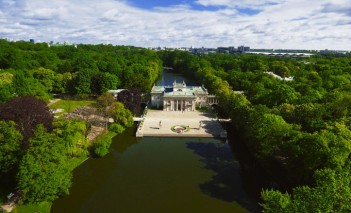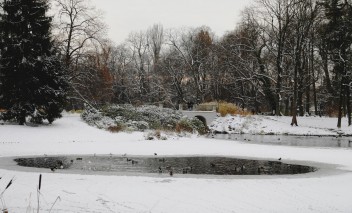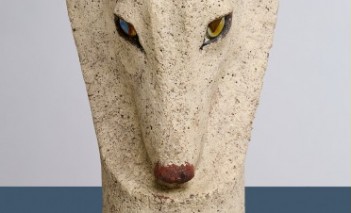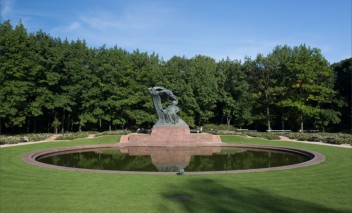First artistic season of the Polish Royal Opera

Requiem in D minor by W. A. Mozart, performed in the Archcathedral Basilica of St. John the Baptist, will inaugurate the artistic season of the Polish Chamber Opera on 2 November 2017 r. A day later, the first stage premiere of "Dziady – Widma" (Forefathers’ Eve – Phantoms) will be performed in the Royal Theatre of the Royal Łazienki.
The artistic plans of the Polish Chamber Opera were discussed during the press conference held in the Palace on the Isle on 23 October 2017. Its participants included: Wanda Zwinogrodzka, Deputy Minister of Culture and National Heritage, representatives of the Polish Royal Opera led by Director Ryszard Peryt, as well as Professor Zbigniew Wawer, Director of the Royal Łazienki Museum.
Programme of the Polish Chamber Opera
The first artistic season of the Polish Royal Opera will be inaugurated on 2 November 2017 at 19.00 with a mass devoted to deceased artists, held in the Archcathedral Basilica of John the Baptist in Warsaw. The audience will have a chance to listen to the Requiem in D minor by Wolfgang Amadeus Mozart, performed by the choir and orchestra of the Polish Royal Opera. The first stage premiere of "Dziady – Widma" will take place the next day, on 3 November 2017 at 19.00 in the Royal Theatre in the Royal Łazienki.
The subsequent opera performances and symphony orchestra concerts have been also planned in other cities, and one of the Warsaw’s venues of the Polish Royal Opera will be the Royal Theatre in the Royal Łazienki. As Deputy Prime Minister Wanda Zwinogrodzka emphasised, the Polish Royal Opera will act as an "opera on the road", which will constitute a vital element of its activities.
The repertoire of the Polish Royal Opera has been developed on the basis of Polish and foreign literature. The performances will include the opera works and vocal lyric poetry by Polish composers of the 18th and 19th century such as Stanisław Moniuszko, Maciej Kamieński, Jan Stefani and Karol Kurpiński.
"We strongly emphasise that the Royal Łazienki is tightly linked with the 18th century and Stanisław August: he was the one who built the Royal Łazienki and ran the Royal Theatre. We are returning to that tradition. I think that this will enrich the offer of the Royal Łazienki. (...) Preparing the new season and the first premiere in such a short time is a great achievement", said Professor Zbigniew Wawer, Director of the Royal Łazienki Museum.
In turn, Deputy Minister of Culture and National Heritage, Wanda Zwinogrodzka emphasised that the first premieres by the Polish Royal Opera are "interesting initiatives, which will be further developed in subsequent seasons”. "I am happy that it was Director Peryt – with his long list of achievements, experience and artistic potential which he tirelessly demonstrates – who has undertaken to lead the Polish Royal Opera (...) We all hope that the institution will be an interesting point on the Warsaw’s and Poland’s musical map" said the Deputy Minister of Culture.
Among the premieres planned in the first artistic season are among others: "Credo" by Krzysztof Penderecki (23 November 2017), "Hebdomas" by Polish renaissance poet, Sebastian Klonowic (3 December 2017), opera "Le Nozze di Figaro" by Wolfgang Amadeus Mozart (30 December 2017), opera "Aleksander I Apelles" (Alexander and Apelles) by Karol Kurpiński (26 January 2018), as well as opera "Nędza uszczęśliwiona" (Poverty Made Happy) by Maciej Kamieński (23 February 2018).
About the Polish Royal Opera
The national cultural institution, based in Warsaw, was established on 1 August 2017. Stanisław Peryt – director, actor, pedagogue, initiator and main originator of the Polish Royal Opera – has been appointed as its Acting Director. The artistic group consists of musicians and singers. The Polish Royal Opera has also been intended as a place for developing the talents of young opera singers and alumni of Polish music academies. The initiatives of the Polish Royal Opera allude to the achievements and the cultural tradition of the 18th-century Republic, which were developing as a result of the remarkable patronage.









